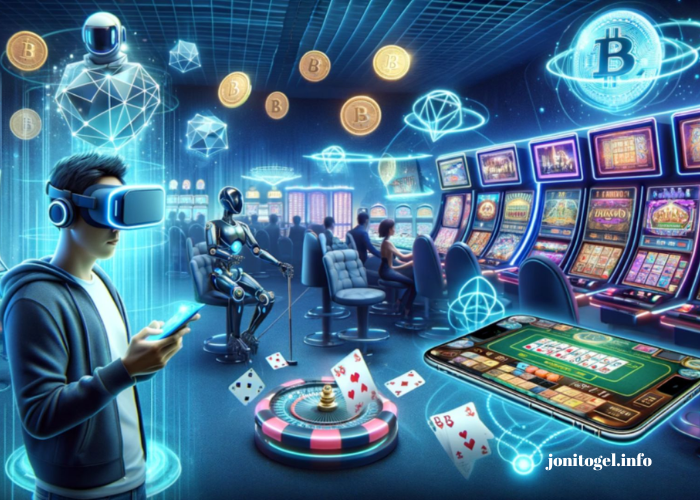Casinos, often synonymous with glamour, excitement, and the promise of fortune, have captured the imagination of people for decades. These establishments, adorned with flashing lights, ringing slot machines, and green-felted tables, represent a world where dreams can come true with a roll of the dice or a lucky hand of cards. However, beyond the surface allure lies a complex ecosystem where psychology, mathematics, entertainment, and hospitality converge. In this article, we delve into the multifaceted world of casinos, exploring their history, psychology, impact on society, and the ever-evolving landscape of the industry.
A Brief History:
The origins of casinos can be traced back centuries, with the first rudimentary forms of gambling emerging in ancient civilizations such as the Greeks, Romans, and Chinese. However, it was not until the 17th century that the concept of the modern casino began to take shape. The Ridotto in Venice, established in 1638, is widely regarded as the world’s first legal casino, offering games of chance to the public under government supervision.
The 20th century saw the proliferation of casinos across the globe, particularly in the United States. Las Vegas, Nevada, emerged as the epicenter of gambling culture, with iconic establishments like the Flamingo, Sands, and Golden Nugget paving the way for the city’s transformation into a mecca for entertainment and gaming. Today, casinos can be found in almost every corner of the world, from the bustling streets of Macau to the tranquil shores of Monaco, catering to a diverse array of patrons.
The Psychology of Gambling:
At the heart of every casino is the fundamental principle of risk and reward, which taps into basic human instincts and desires. Psychologists have long studied the psychological mechanisms that drive gambling behavior, highlighting factors such as the allure of uncertainty, the thrill of anticipation, and the dopamine rush associated with winning.
Casinos are meticulously designed to capitalize on these psychological phenomena, with every aspect of their layout and ambiance carefully curated to maximize player engagement. From the strategic placement of slot machines to the use of vibrant colors and flashing lights, every element is calibrated to create an immersive and stimulating environment that keeps patrons coming back for more.
Moreover, casinos employ a range of psychological tactics to encourage continued play, including the provision of complimentary drinks, the use of subtle cues to suggest good fortune, and the strategic manipulation of sound and music to enhance the gaming experience. These tactics are designed to create a sense of euphoria and excitement, which can cloud judgment and lead to irrational decision-making.
Impacts on Society:
While casinos offer entertainment and the potential for financial gain, they also carry significant social and economic implications. Proponents argue that casinos stimulate economic growth, create jobs, and generate tax revenue for local governments. Additionally, they provide a source of entertainment and recreation for millions of people around the world, contributing to the vitality of tourism industries in destinations like Las Vegas and Macau.
However, critics contend that the proliferation of casinos can have adverse effects on society, including increased rates of gambling addiction, crime, and social inequality. Research has shown that problem gambling is more prevalent in communities with easy access to casinos, leading to financial hardship, family breakdowns, and mental health issues.
Furthermore, casinos have been linked to organized crime and money laundering, particularly in jurisdictions with lax regulatory oversight. The allure of easy money can attract unsavory elements, leading to corruption and illicit activities that undermine the integrity of the industry.
The Future of Casinos:
In recent years, the casino industry has undergone significant transformation in response to shifting consumer preferences and technological advancements. The rise of online gambling platforms has disrupted traditional brick-and-mortar casinos, offering players greater convenience and accessibility. Mobile apps and virtual reality technologies have further expanded the reach of gambling, allowing users to play their favorite games anytime, anywhere.
Moreover, casinos are increasingly incorporating elements of entertainment and hospitality into their offerings, blurring the lines between gambling and leisure. Modern casino resorts feature world-class hotels, restaurants, shopping malls, and entertainment venues, catering to a diverse clientele seeking a multifaceted entertainment experience.
Looking ahead, the casino industry is poised for continued growth and innovation, driven by emerging trends such as cryptocurrency integration, esports betting, and augmented reality gaming. However, challenges remain, including regulatory scrutiny, competition from online operators, and evolving consumer preferences.
Conclusion:
Casinos occupy a unique place in the cultural landscape, offering a blend of excitement, escapism, and opportunity. From their humble origins to their present-day extravagance, casinos have evolved into sprawling entertainment complexes that attract millions of visitors each year. However, behind the glitz and glamour lies a complex ecosystem shaped by psychology, economics, and societal dynamics.
As the casino industry continues to evolve, it is essential to strike a balance between innovation and responsible gaming practices. By understanding the psychological mechanisms that drive gambling behavior, implementing effective regulations, and promoting awareness of the potential risks, we can ensure that casinos remain a source of entertainment and enjoyment for generations to come.






